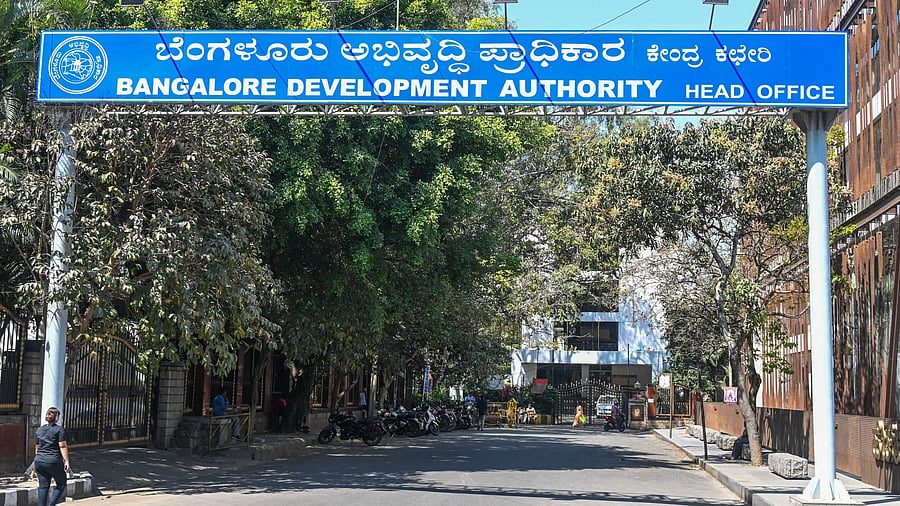
A view of Bengaluru Development Authority (BDA) office
Credit: DH Photo
The Karnataka Real Estate Regulatory Authority’s (RERA) decision to bring the Bangalore Development Authority (BDA) under its ambit is a significant step towards transparency and accountability in public housing. Rejecting the BDA’s contention that it is a statutory authority and not a “promoter”, RERA rightly observed that the purpose of a project – for profit or otherwise – is immaterial when land is developed and sold to the public. In directing the BDA to register the Nadaprabhu Kempegowda Layout (NPKL) under RERA, the authority has struck at the heart of bureaucratic impunity that has long plagued Bengaluru’s largest layout developer. Ironically, BDA officers themselves have admitted that the affidavit seeking exemption from RERA was filed by an advocate on record without the BDA’s consent. Taking serious note, the BDA removed him, a telling sign of the internal disarray that has come to characterise the organisation.
For decades, the BDA – entrusted with guiding Bengaluru’s planned growth – has become synonymous with irregularities, poor governance, and corruption. Its history is littered with scams: forged allotment letters, fake possession certificates, impersonation of original allottees, and even the existence of a ‘parallel BDA office’ that manufactured counterfeit documents using official seals. Such repeated scandals have eroded public trust and left thousands of homebuyers disillusioned. Since taking charge, Commissioner P. Manivannan has initiated some reforms to restore the agency’s credibility. Long-pending issues in the Kempegowda and Arkavathy layouts are finally being resolved. Hundreds of Arkavathy allottees, who had waited nearly two decades for their sites, recently received them through a computerised randomisation process. In the Kempegowda Layout, where large stretches had remained without basic amenities, work has been fast-tracked, with BDA aiming for full completion by March 2026. Such measures may revive public confidence in the institution, but systemic accountability cannot rest on the shoulders of individuals.
That is why bringing the BDA under RERA is not just desirable but inevitable. The Authority performs all the functions of a real estate promoter: acquiring land, developing layouts, collecting funds, and selling sites. It must therefore be bound by the same obligations as private developers. RERA oversight will compel the BDA to maintain project-specific accounts, disclose all approvals, adhere to timelines, and compensate allottees for delays. These are protections citizens have long been denied. The RERA order is, thus, a welcome move towards ensuring that a public authority finally becomes answerable to the very public it was created to serve.
